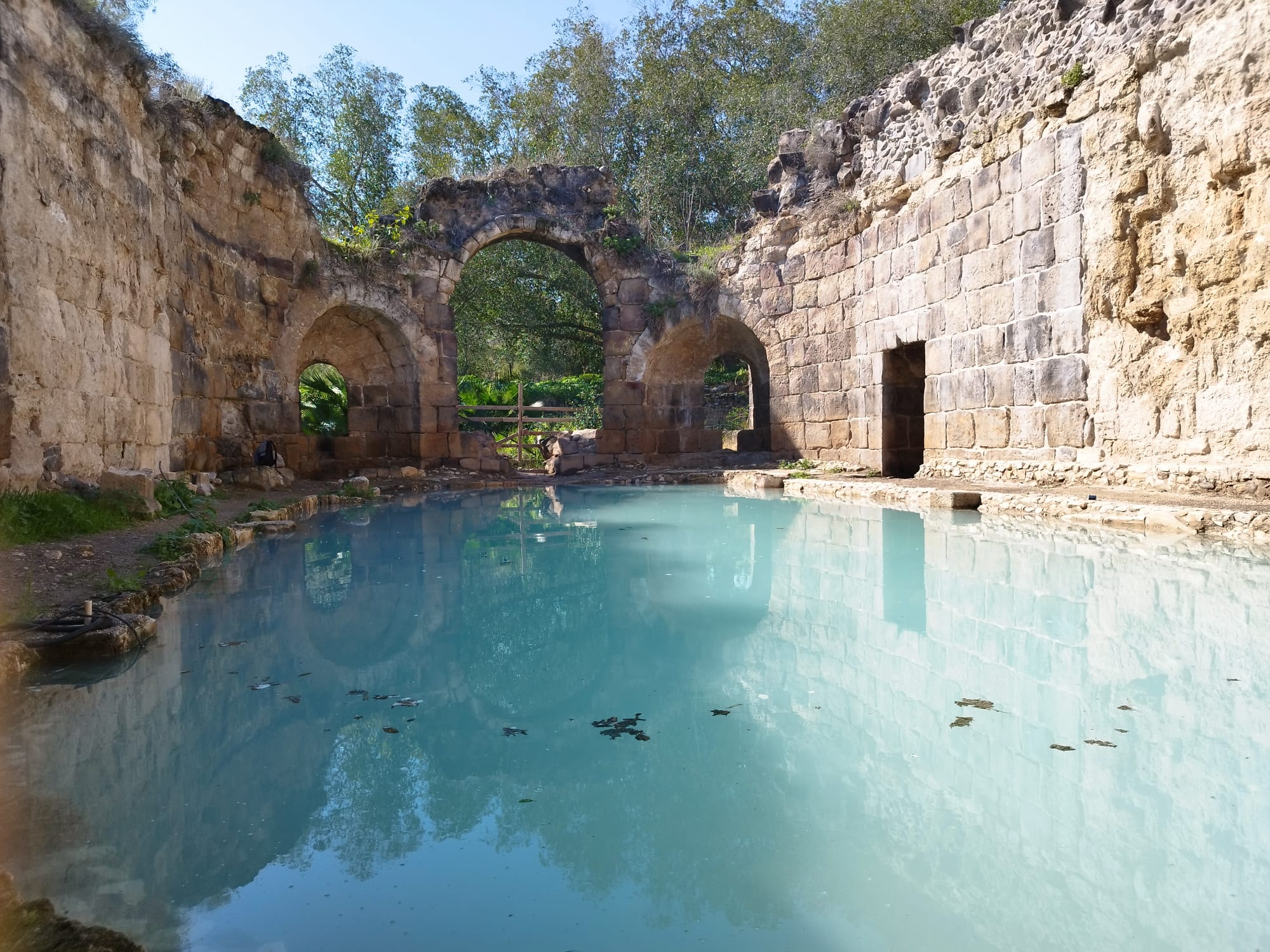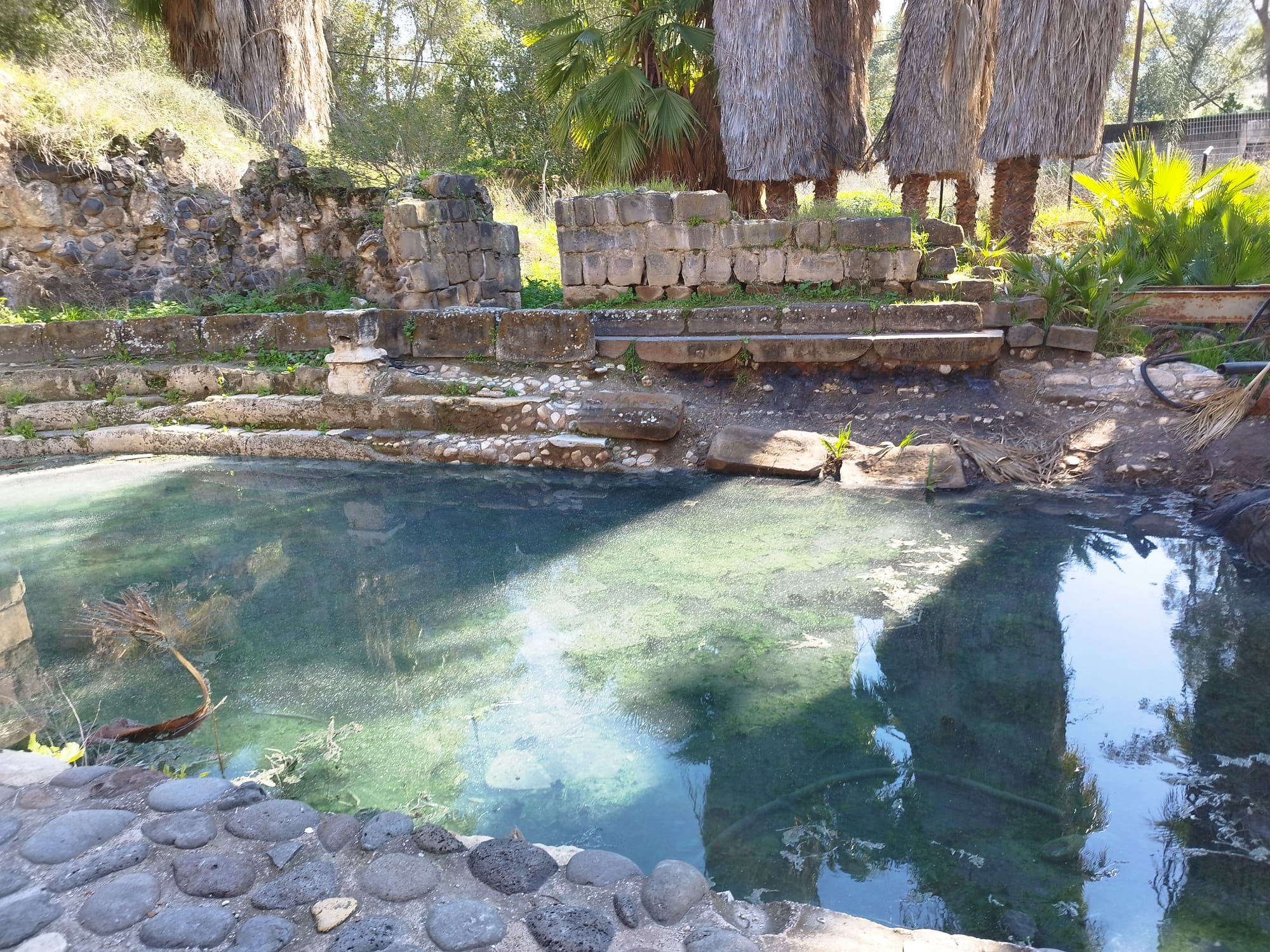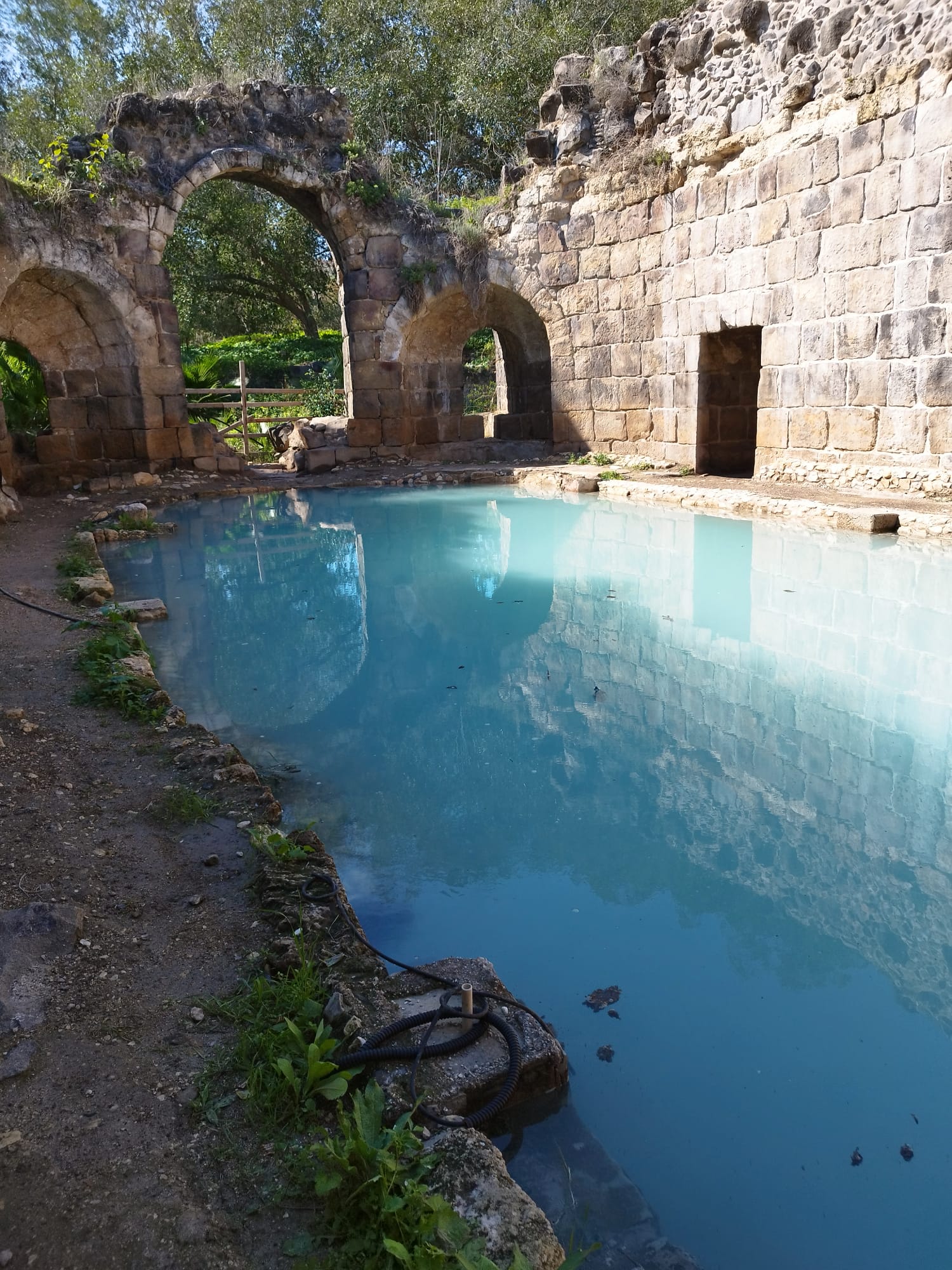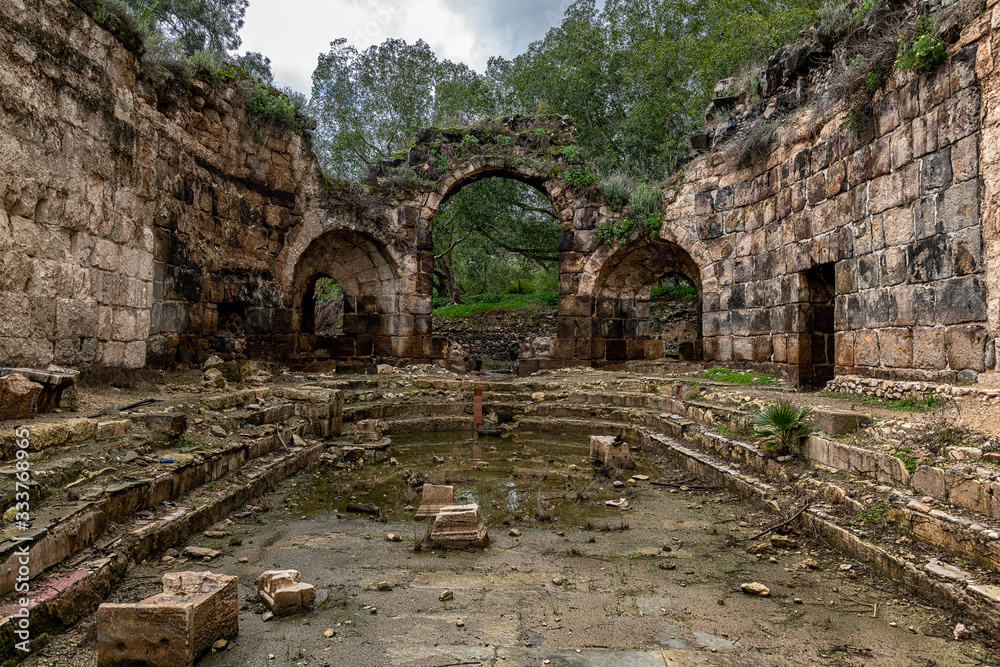Introduction
Nestled in the picturesque Yarmuk River valley, just east of the serene Sea of Galilee, Hamat Gader has served as a sanctuary for healing and relaxation for nearly two millennia. Known for its natural hot mineral springs, which can reach temperatures as high as 50ºC, this historic site has evolved from its humble beginnings into one of the most significant bath complexes in the eastern Roman Empire.

The Rise of Hamat Gader
The history of Hamat Gader dates back to the 2nd century, when it began to flourish under Roman rule. Archaeological findings reveal that the baths were not merely functional but were elaborately designed spaces featuring separate pools, dressing rooms, and stunning mosaics. This intricate architecture reflects the grandeur of Roman spa culture, where bathing was not only a means of hygiene but also a social activity. Visitors would gather to enjoy the therapeutic properties of the mineral-rich waters, which were believed to have healing effects.
Byzantine Expansion
The site’s prominence continued into the Byzantine period, during which Hamat Gader evolved into a bustling wellness center. This era saw an influx of visitors from across the region, drawn by the allure of its healing waters and luxurious facilities. Hamat Gader became a focal point for both relaxation and social interaction, embodying the cultural sophistication of the time.

Resilience Through Adversity
In the 7th century, a powerful earthquake struck the area, leaving the baths in ruins. However, the site’s importance was not forgotten. The Umayyad caliphs recognized the cultural and therapeutic value of Hamat Gader, overseeing a restoration of the baths that ensured its continued relevance in the region. This period of rebuilding highlighted the resilience of the site and its significance in the ongoing narrative of wellness and community gathering.
Abandonment and Preservation
Despite its restoration, Hamat Gader was ultimately abandoned in the 9th century. Yet, the ruins have remarkably withstood the test of time. Today, visitors can explore the remnants of Roman and Byzantine architecture, including columns, mosaics, and ancient inscriptions, all set against the lush backdrop of the Yarmuk valley. These archaeological elements serve as a tangible link to the past, inviting reflection on the social and cultural dynamics of ancient civilizations.

Modern Wellness Experience
In contemporary times, Hamat Gader has adapted to modern expectations while preserving its historical essence. The site now features modern baths that offer a similar restorative experience to what was enjoyed by Romans, Byzantines, and Umayyads centuries ago. Guests can immerse themselves in the soothing mineral-rich waters, which continue to attract those seeking relaxation and healing.

Conclusion
Hamat Gader is not just a historical site; it is a bridge connecting ancient luxury with modern wellness. Its rich history of healing and relaxation invites visitors to experience the tranquility of its hot springs while reflecting on the cultural heritage that has shaped the region. As the echoes of ancient luxury blend with the natural beauty surrounding Hamat Gader, it stands as a testament to the enduring significance of wellness and community throughout history.

